
Whilst down at the wall a few months back, I came across a familiar face doing laps on the auto-belay lines. He smiled as I watched him catch his breath after a particularly tiring run.
"How are you?" Ivor enquired, breathless.
"Great thanks, yourself?"
"Well...I'm still here!" came his reply.
I laughed and Ivor steered the conversation back towards me for a minute or so. I asked what he had been up to:
"Not much, same old!" he replied. A good few seconds passed, until he exclaimed: "Oh, I climbed my first 7a outdoors last week, and I've just turned 70!" as though he'd almost forgotten about it...
Dr Ivor McCourt lives in Edinburgh and is a professional Engineer. He specialised in the design of high pressure hydraulic systems, including hydraulics in aircraft, offshore and military. He's a regular face at EICA:Ratho and despite his age, appears to train harder than many climbers 40 or 50 years younger than him. I was inspired by his achievement of "7a at 70" and thought I'd ask him some questions to find out more and share his story...
When and how did you start climbing?
I used to do underwater diving and water ski slalom and racing, but in the teams I was involved with, individuals got old and there were too many commitments. I looked for alternative activities and tried climbing and really liked it, that was in 1987 when I was 42.
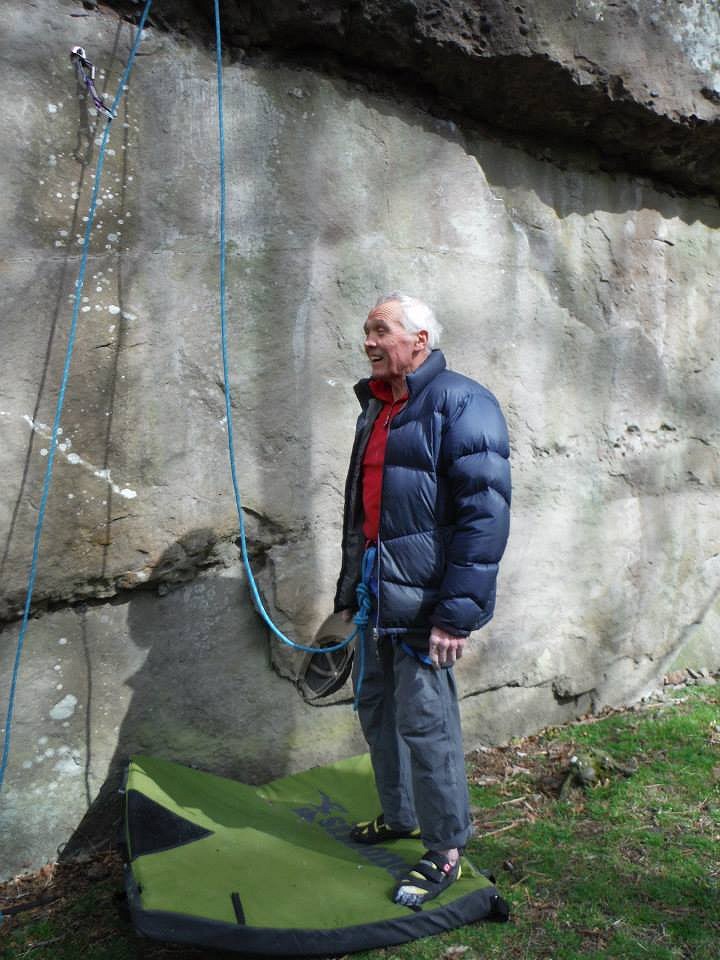
Was 7a a long-term goal? Why 7a in particular?
I climbed quite a lot but not particularly hard, then I had a lot of time away from climbing because of business commitments. When I came back to it, I was not climbing fit and was more than a bit rusty, very scary. I decided I must be in physical shape for this activity and be using best current safety practices. At this time I started climbing and training with Euan Whittaker and Martin Holland. Euan supplied the routines and direction for the gym, flexibility, wall and bouldering sessions. They are both seriously focussed on safety, physical and psychological training. The training was/is hard but showed real results in strength, stamina and flexibility which translated to climbing better. So when my 70th birthday approached, 7a at 70 did not seem too ridiculous, and I set the goal. I mentioned it to some of my peers, they asked if I had fallen off and landed on my head recently!
Tell us a bit about the process of redpointing the route - Short Haul (7a), at Rob’s Reed.
As this grade is at my limit I knew that I would have to redpoint it.
The hardest move was moving from an under cling on my left hand with my feet on small holds and making a huge move with my right into a horizontal break that was at the limit of my reach. After the first attempt on the first day I knew I would succeed, we came back a few days later and I got it.
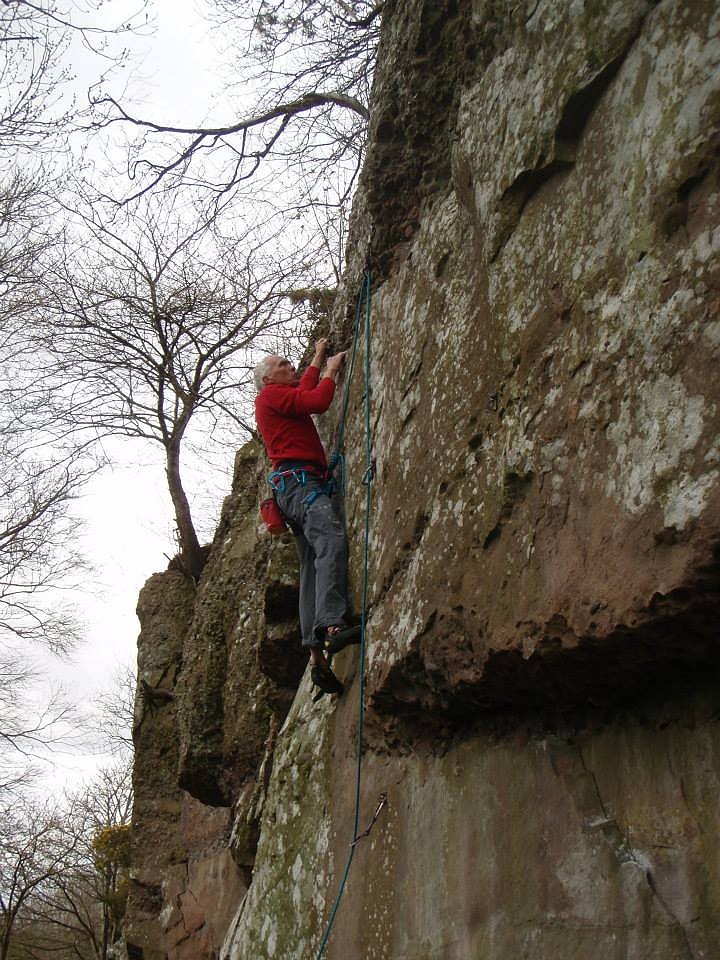
How did it feel when you topped out?
It was a mixture of exhilaration, relief that I had not blown it, and the realisation that I am not over the hill yet!
"Huge gains are possible at any age, the main thing is to start slow to avoid injuries and build up gradually."
You turned 70 this year - do you see many people of your age down the wall or at the crag? Do you think more people will climb into their 60's and 70's in the future? If so, why?
There are a few people of my age that I see at the wall and crags. Most of the climbers of my age for whatever reason, do not believe that structured training can help their climbing. Also there is a widespread belief in my peer group that it's impossible to build strength/muscle after approximately 60. I have kicked that myth right into the long grass! I sincerely believe that more people will climb hard into their 60s, 70s and beyond as structured training becomes more accepted for all age groups.
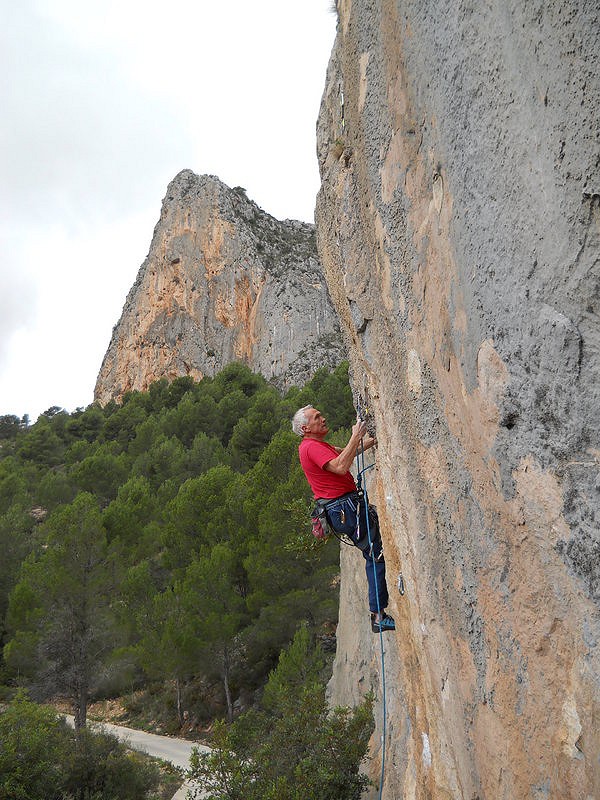
What advice would you give you someone who thinks their "best days are behind them" and might lack the confidence to aim high?
Huge gains are possible at any age, the main thing is to start slow to avoid injuries and build up gradually. You must have a structured programme that is done regularly. The programme must be set by a person who has experience of climbing/training climbers. Anything is possible, if one wants it enough, and has the discipline to set short and long term goals.
What do you want to achieve next?
To enjoy myself in the outdoors, and maybe, 8a at 80 who knows!
Watch a clip of Ivor on Short Haul below. Thanks to Euan Whittaker and Martin Holland from Climbnow.co.uk for the images and video.
7A at 70!!Congratulations to Ivor who led F7A at Robs Reed today. This effort is even better given the fact that Ivor turned 70 in February. This short video clip shows some of the moves on the route.
Posted by Climbnow on Monday, 13 April 2015
- INTERVIEW: Albert Ok - The Speed Climbing Coach with a Global Athlete Team 17 Apr
- SKILLS: Top 10 Tips for Making the Move from Indoor to Outdoor Bouldering 24 Jan
- ARTICLE: International Mountain Day 2023 - Mountains & Climate Science at COP28 11 Dec, 2023
- ARTICLE: Did Downclimbing Apes help Evolve our Ultra-Mobile Human Arms? 5 Dec, 2023
- ARTICLE: Dàna - Scotland's Wild Places: Scottish Climbing on the BBC 10 Nov, 2023
- INTERVIEW: Loki's Mischief: Leo Houlding on his Return to Mount Asgard 23 Oct, 2023
- INTERVIEW: BMC CEO Paul Davies on GB Climbing 24 Aug, 2023
- ARTICLE: Paris 2024 Olympic Games: Sport Climbing Qualification and Scoring Explainer 26 Jul, 2023
- INTERVIEW: Malcolm Bass on Life after Stroke 8 Jun, 2023
- ARTICLE: Alexandr Zakolodniy - A Climbing Hero of Ukraine 26 Apr, 2023



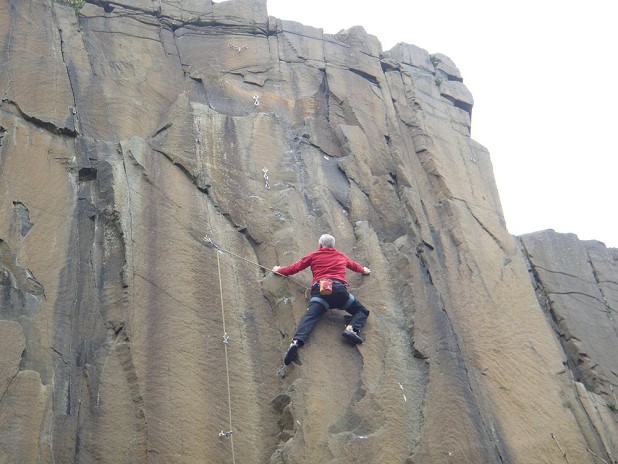

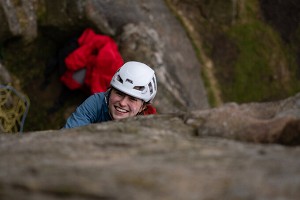
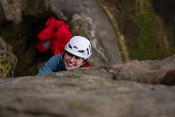
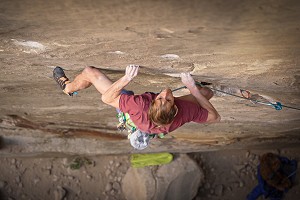
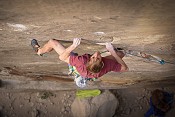








Comments